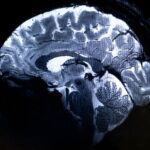Melbourne, Australia – A new study published in the journal Human Reproduction has found that providing women with accurate and balanced information about the Anti-Müllerian Hormone (AMH) test, which measures egg reserve, can significantly reduce their interest in undergoing the procedure.
The research, conducted with women in Australia and the Netherlands, compared two groups: one receiving evidence-based information developed by a multidisciplinary team, and another exposed to information from a website promoting the test directly to consumers.
The study revealed that women who received the evidence-based information demonstrated significantly lower interest in the AMH test compared to those who viewed the consumer-facing website. This suggests that readily available online information, often presented with a commercial focus, may overemphasize the benefits of the test while downplaying potential risks and limitations.
The study highlights the importance of providing women with accurate and unbiased information to make informed decisions about their reproductive health. It underscores the need for critical evaluation of readily available online information and emphasizes the role of healthcare professionals in guiding women through these important decisions.
Disclaimer: This is a simplified summary of the research findings. For a comprehensive understanding, refer to the original study published in Human Reproduction.
Note: This article aims to provide a concise and informative summary. It may be further enhanced by:
- Including quotes from researchers involved in the study.
- Exploring the potential implications of this research for women’s reproductive health decision-making.
- Discussing the role of healthcare providers in counseling women about the AMH test.
- Addressing potential limitations of the study.











